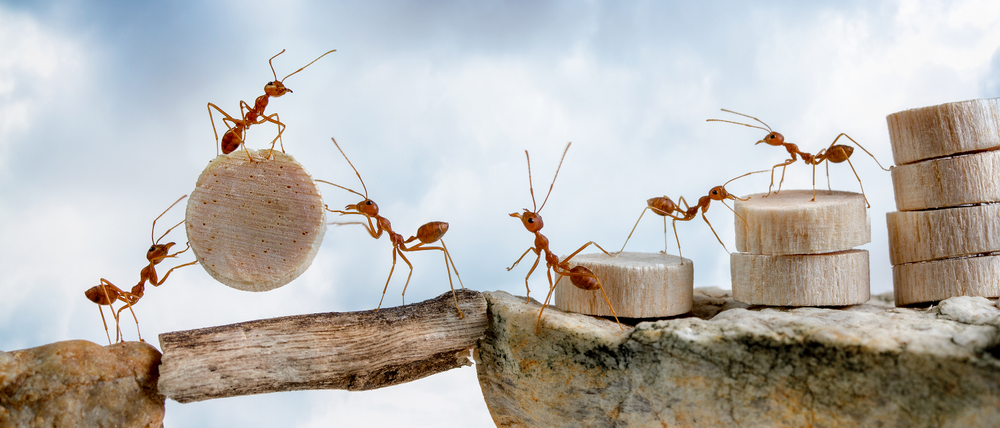
‘What are the conditions of the creative attitude, of seeing and responding, of being aware and being sensitive to what one is aware of? First of all it requires the capacity to be puzzled. Children still have the capacity to be puzzled.’ – Erich Fromm
If you're expecting a fingerprinted free-for-all, the calm and attentiveness of the Montessori classroom may be a surprise. Where are the children exploring with art materials? Why aren't the walls covered in children's paintings and collages? Where is the dress-up corner or the bin willed with musical instruments? Does Montessori squelch children's creativity?
Quite the opposite. The Montessori environment is designed to support children's authentic creativity by offering them the tools they need to demonstrate it. For example, you are unlikely to see the kinds of prepared art projects in most Montessori classrooms in which each child's product looks the same. You won't see children being asked to replicate a model product. Instead, you will see children practicing their fine motor control so that, when they want to draw or paint a particular object, they aren't frustrated by the tools. You'll see children learning how to observe and discern small differences in what they see, so that they are able to represent those differences clearly. You'll see children developing their ability to distinguish between sights and sounds, smells and tastes. The intellectual and physical skills they need to be able to bring what's in their imaginations into the concrete world are supported and refined through their use of the Montessori materials.
But while those skills are important, the most important quality that Montessori preserves in children is their curiosity. When children are truly creative, they are doing more than just repeating crafts that have been modeled for them by their teachers. They are bringing something new to the world, a new way of seeing, a new understanding that builds on what we already know. We seek to support children's creativity not by letting them follow every impulse. We seek to support children's creativity by guiding them to ask interesting questions, to wonder at the beauty of the world. We seek to support children's creativity by offering them the time and space to think deeply and broadly about the universe, by introducing them to what we do know in a way that motivates them to uncover what we do not yet know.
Essential to the model is the child-centered, self-correcting nature of the Montessori materials. Children's intrinsic drive toward exploration and discovery is protected when they are free to follow their own interests. In Montessori classrooms, the curriculum is as unique as the child. A child who has a deep interest in bird-watching, for example, can follow that interest while the teacher identifies the opportunities to integrate language, science, math and cultural lessons through bird-watching. Because the materials are self-correcting and untimed, a child can stay with an interest as long as they choose without fear of public failure. Their willingness to take risks in their own learning and in their own creations remains unrestricted. They are free to make mistakes. And without the willingness to be wrong, we won't dare to try anything new. We won't be truly creative unless we are willing to take that chance.
So, if you're looking for evidence of children's creativity within Montessori classrooms, don't expect to see it in children's artwork taped to the wall. Instead, look for it in the beautiful designs of the metal insets. Look for it in the extensions they create from the sensorial materials. Look for it in the kinds of questions they ask in their Elementary research projects, or the solutions they develop for social change in Middle School. Look for it in the ways they describe the universe and the wonder they demonstrate when they're observing an anthill on the playground. Then think about the great works of art that last across time and culture. Profound works of art are not regurgitated. Instead, they reflect what is universal about the human experience. By offering the child the world, as it truly is, and wondering with them as they learn to observe and make sense of it, we give them that universal experience to express. In Montessori, we share with children a sense of wonder and awe, and support in them that willingness to be puzzled from which true creativity is born.
#creativity #Art #Wonder #Theory #ForParents #ForTeachers #General
